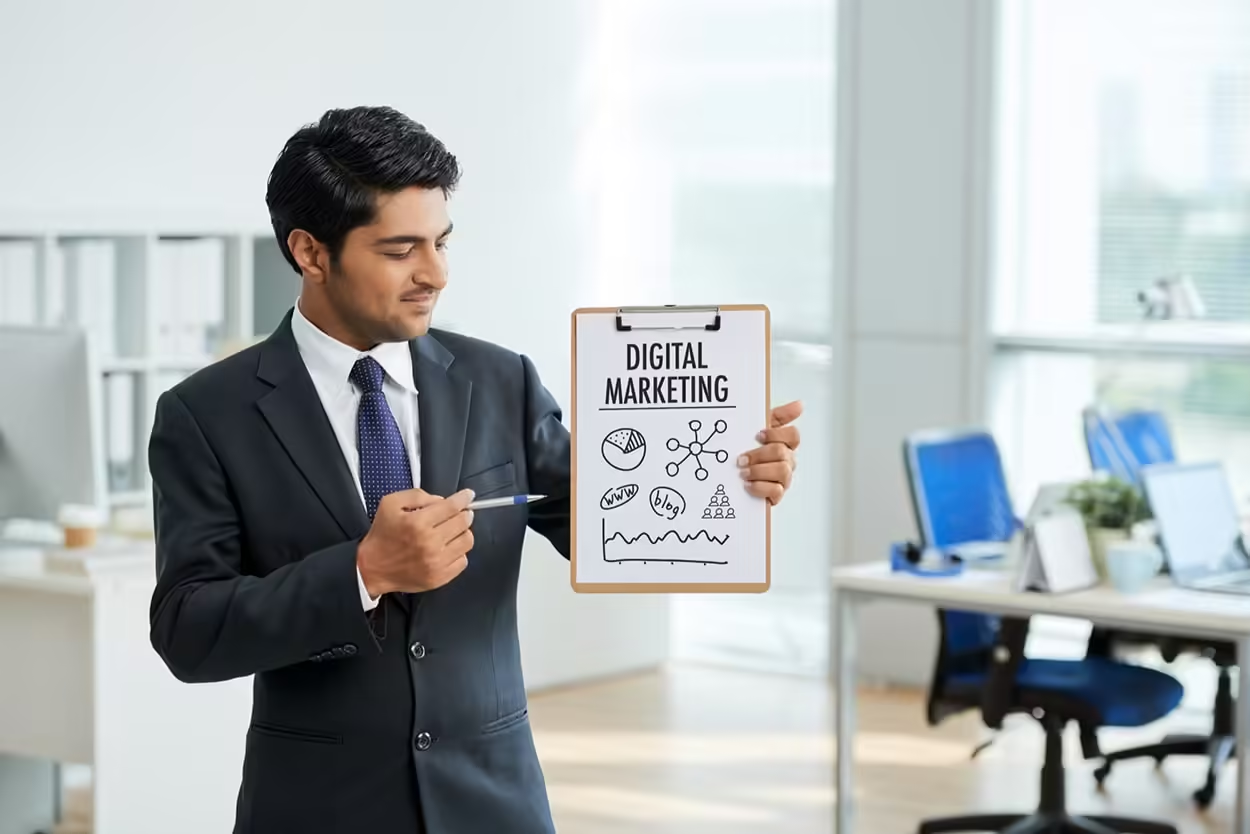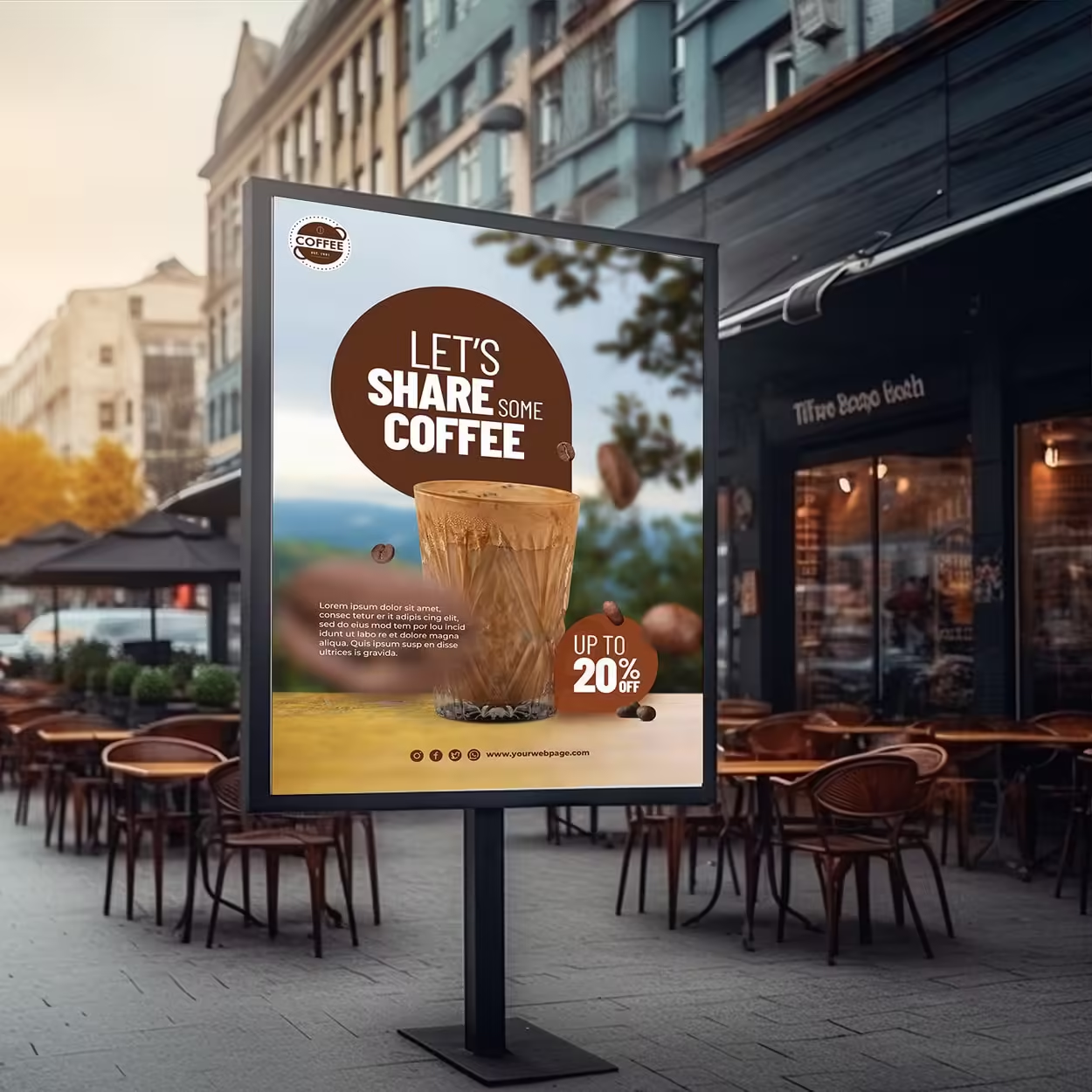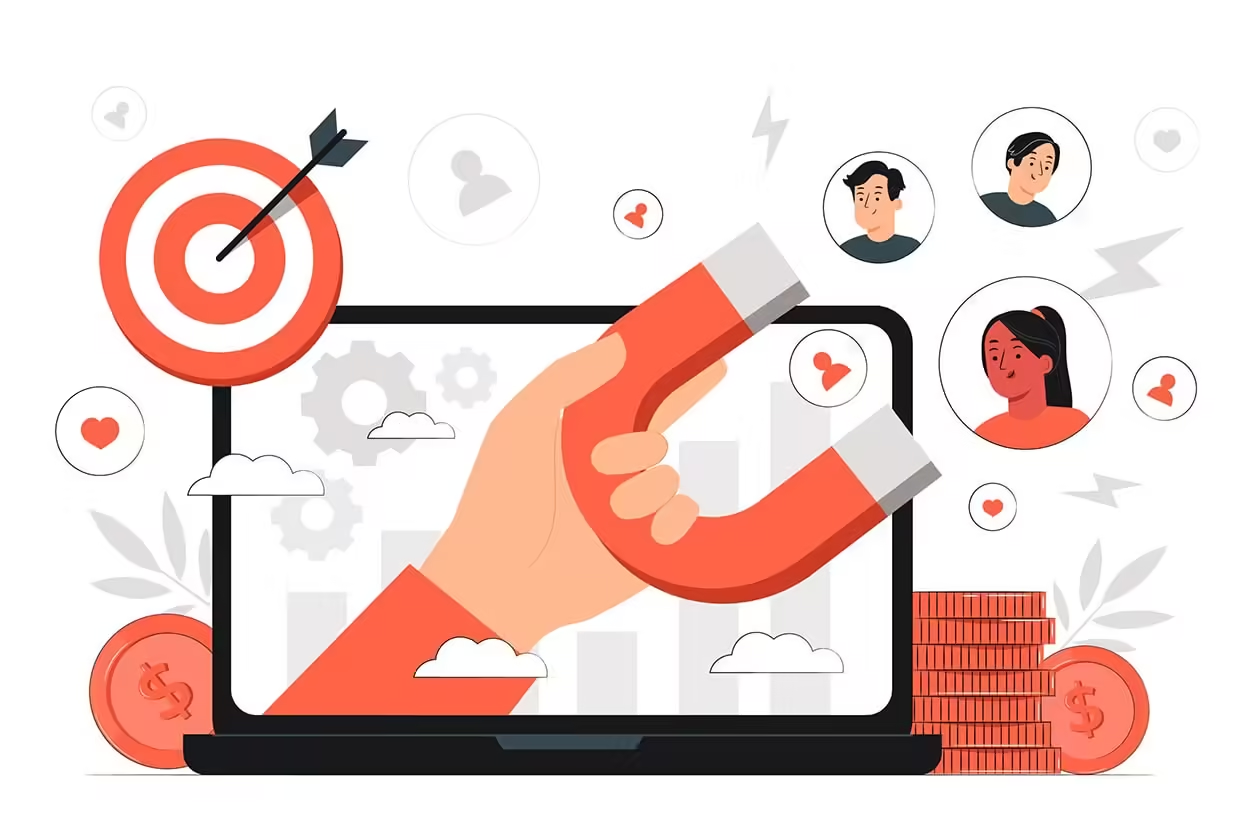Introduction
“Marketing” Do you know what it is? In fact, many people mistakenly believe that marketing and sales are synonymous. However, marketing and sales are fundamentally distinct entities. Let me explain in simple language.
Sales: You must be aware that selling any product or service is sales. Marketing consists of informing people about a specific product or service, raising awareness about it, highlighting its unique features, and explaining how it differs and outperforms other products on the market.
Ultimately, marketing is the process of teaching and encouraging people to purchase a product or service after providing them with all the necessary information. Without marketing, it becomes nearly impossible or extremely difficult to introduce and sell any new product into the market.
What are the different types of marketing that companies can use to grow and prosper? This article will dive deep into these questions, providing a comprehensive guide for anyone looking to understand the importance of marketing in today’s world.

What is Marketing? Definition of Marketing
Marketing is the process of developing, conveying, delivering, and educating people about products or services that benefit customers, clients, partners, and society as a whole. In layman’s words, it’s the link between businesses and customers.
Marketing entails understanding client needs, creating products or services to meet those needs, and determining how to make potential customers aware of the value the company offers.
Marketing encompasses everything from product development and pricing strategies to the distribution channels used and the promotional tactics employed to attract customers.

Quotes on Marketing
“The aim of marketing is to know and understand the customer so well, the product or service fits him and sells itself.” – Peter Drucker
“Stopping advertising to save money is like stopping your watch to save time.” – Henry Ford
“Good marketing makes the company look smart. Great marketing makes the customer feel smart.” – Joe Chernov
“People do not buy goods and services. They buy relations, stories, and magic.” – Seth Godin
“The best marketing doesn’t feel like marketing.” – Tom Fishburne
“Marketing is no longer about the stuff you make, but the stories you tell.” – Seth Godin
“Your brand is what other people say about you when you’re not in the room.” – Jeff Bezos
How Marketing Helps in Sales?
Marketing helps sales teams generate leads, increase brand awareness, and drive demand for products or services. Through focused efforts, marketing attracts and nurtures new consumers until they are ready for engagement with the sales team.
Marketing helps the sales team adapt their approach and close deals more efficiently by providing useful data about consumer behavior and preferences. Furthermore, marketing resources such as brochures, case studies, and testimonials provide the sales staff with tools for better demonstrating the value of their solutions, resulting in improved sales conversions.
How Marketing Helps Consumers
Marketing informs customers about products or services and highlights their benefits, allowing them to make more informed purchasing decisions. Marketing emphasizes how a product addresses a specific problem or meets a demand via advertisements, promotions, and product descriptions. It promotes trust and authenticity by giving reviews, testimonials, and comparisons, allowing buyers to feel secure in their decisions.
Additionally, marketing provides special bargains, discounts, and loyalty programs to stimulate purchases. Marketing streamlines the purchasing process by making the goods visible and accessible, guiding customers from awareness to ultimate purchase.
The Importance of Marketing for Businesses
Effective marketing is a must for all businesses, large and small. Here’s how marketing enables companies to succeed:
Building Brand Awareness
Marketing ensures a company’s name, products, or services reach its intended audience, boosting customer trust.
Driving Sales and Revenue
A well-planned marketing strategy boosts business and revenue by turning leads into consumers.
Marketing, whether through social media campaigns, email marketing, or search engine optimization (SEO), seeks to turn leads into consumers, providing a consistent source of revenue.
Fostering Customer Loyalty
Marketing strategies like loyalty programs, personalized discounts, and outstanding customer service drive repeat business and convert one-time customers into loyal brand champions.
Gaining a Competitive Edge
Marketing enables businesses to express their unique selling points and persuade customers to choose their products or services over competitors.
Understanding the Market and Customer Needs
Marketing research enables businesses to understand client habits, preferences, and purchasing trends, ensuring their relevance in a changing market.
Building a Positive Brand Image
Brand perception is everything. Marketing allows firms to influence how the public perceives their brand. A well-crafted marketing plan, whether through public relations, content marketing, or influencer collaborations, can help to improve a brand’s reputation and image.
Why Marketing is Important after Sales?
People think that marketing strategies end after sales. But it is not true; the need for marketing persists even after sales. With the right marketing strategy, we can attract new consumers and sell our product or service. If the same consumers still require our product or service, we will need to re-market it to them.
This requires brand building so that customers do not forget us, loyalty programs, and many other methods in which marketing once again works.
Types of Marketing
Marketing isn’t one-size-fits-all. There are several types of marketing, each tailored to specific corporate objectives, industries, and target audiences. The following are some of the most common forms of marketing that companies employ to expand and succeed:

Digital Marketing | What is Digital Marketing?
A robust online presence is essential for companies in the modern digital era. The term “digital marketing” refers to any type of advertising that takes place entirely online, using digital mediums such as the web and mobile phones to reach consumers. This includes:
- Social Media Marketing: Social media marketing is a subset of digital marketing, focused specifically on promoting products or services through social media platforms like Facebook, Instagram, Twitter, and LinkedIn.
- Search Engine Optimization (SEO): The process of optimizing a website so that it ranks higher on search engine results pages (SERPs).
- Pay-Per-Click (PPC) Advertising: Businesses pay for each click their ads receive, which appear at the top of search engine results.
- Social Media Marketing: Promoting products and engaging with customers through platforms like Facebook, Instagram, Twitter, and LinkedIn.
- Email Marketing: Sending personalized emails to a list of subscribers, often to promote products, share updates, or offer discounts.
- Content Marketing: Creating valuable and relevant content to attract and engage a specific target audience. Blog posts, videos, podcasts, and infographics are common forms of content marketing.
Traditional Marketing
Despite the rise of digital marketing, traditional methods are still very much in use, particularly by companies aiming to reach specific geographic areas or older consumers.
Traditional marketing remains effective because it touches local audiences, particularly through television, radio, billboards, and print advertisements. It is tangible, memorable, and helps to create customer trust.

Many people still engage with traditional media on a regular basis, making it a trustworthy way for brands to reach a large and diverse audience.
Traditional marketing includes:
- Print Advertising: Ads in newspapers, magazines, brochures, or flyers.
- Television and Radio Advertising: Commercials aired on TV or radio stations.
- Billboards and Outdoor Ads: Large-scale outdoor advertisements that reach a broad audience, particularly in high-traffic areas.
Influencer Marketing | What is Influencer Marketing
Influencer marketing entails working with people who have a large social media following or authority in a specific niche. Businesses collaborate with influencers to promote their products or services to their followers. This sort of marketing is especially beneficial for increasing brand credibility and reaching new audiences.

Here’s how to explain influencer marketing to your client:
- Influencer marketing involves partnering with individuals who have a large, engaged following on social media or other platforms.
- These influencers promote your products or services to their audience, often through posts, reviews, or videos.
- It builds credibility quickly as consumers trust recommendations from people they follow and admire.
- This strategy helps you reach specific target audiences, boosting brand awareness and driving sales.
- Influencers create authentic content, which can make your brand more relatable and appealing to potential customers.
Affiliate Marketing | What is Affiliate Marketing
In affiliate marketing, businesses pay affiliates (partners) for driving traffic or sales to their website. Affiliates market the company’s products through their own channels (such as blogs, websites, or social media), and in exchange, they receive a commission for each transaction made via their referral link.

Here’s a simple way to explain affiliate marketing to your client:
- Affiliate marketing is a performance-based strategy where businesses pay partners (affiliates) for driving traffic or sales through their referral links.
- Affiliates promote your products on their platforms like blogs, websites, or social media.
- You pay a commission only when a sale or lead is generated through their efforts.
- It’s a cost-effective way to expand your reach and attract new customers without upfront advertising costs.
- Both parties benefit: you get more sales, and affiliates earn commissions for their promotion efforts.
Guerilla Marketing | What is Guerilla Marketing
Guerilla marketing is a creative and sometimes strange way to advertise that aims to make an impression and start a conversation. To get people’s attention, this kind of marketing uses low-cost but powerful methods, like flash mobs, street art, or social media initiatives that go viral.

Event Marketing
Organizations engage in event marketing when they host, sponsor, or attend events to promote their goods and services. This could take the form of a virtual event, a conference, or a trade expo. The objective is to showcase products, engage in direct interaction with prospective buyers, and produce leads.
Content Marketing | What is Content Marketing
In order to attract and keep a specific target audience, content marketers produce and disseminate information that meets their needs on a regular basis. Content marketing is an alternative to traditional advertising methods that focuses on delivering valuable information to consumers in the form of guides, tutorials, and articles. Posts on blogs, white papers, and how-to instructions are a few examples.

Here’s how to explain content marketing to your client:
- Content marketing focuses on creating valuable, relevant content to attract and engage your target audience.
- It’s not about direct selling; instead, it provides helpful information like blogs, videos, guides, or infographics.
- These build trust and position your brand as an authority, making customers more likely to choose your products or services.
- Effective content drives organic traffic to your website, improving visibility and search rankings.
- It nurtures long-term relationships, turning potential leads into loyal customers by consistently delivering useful content.
Email Marketing
Email marketing, which is delivering promotional messages to a targeted audience, is one of the most cost-effective forms of advertising. Whether it’s a weekly newsletter, an announcement about a new product, or a special deal, email marketing lets businesses stay in touch with their audience directly.
Here’s how to explain email marketing to your client:
- Email marketing is a direct form of communication, where businesses send targeted messages to a list of subscribers.
- It’s used to share promotions, updates, or valuable content that keeps customers engaged with your brand.
- Personalized emails can improve customer relationships, helping to build trust and encourage repeat purchases.
- It’s cost-effective and measurable, allowing you to track open rates, clicks, and conversions for optimization.
- You can nurture leads and convert them into customers, making email marketing an essential tool for driving sales and loyalty.
Public Relations (PR)
Public relations are all about controlling a company’s reputation and fostering favorable interactions with the public. Public relations methods include news releases, media appearances, and collaborations with key stakeholders. An effective public relations effort may generate media attention, increase brand awareness, and reduce the effects of unfavorable publicity.
Mobile Marketing
As more people use smartphones, mobile marketing has become an essential component of any business’s marketing strategy. This includes contacting customers via SMS messaging, mobile apps, or mobile-friendly websites. Mobile marketing enables firms to personalize content and offers depending on location, behavior, and preferences.
Conclusion
Marketing is an effective technique that contributes significantly to the success of any organization. Marketing guarantees that companies can reach their target audience and grow in a competitive world by increasing brand awareness, driving sales, and developing customer loyalty.
The many methods of marketing—from digital to traditional and everything in between—provide organizations with numerous options to engage with their target audience. Companies that understand and use the correct combination of marketing methods may achieve their objectives, develop strong customer relationships, and continue to expand in an ever-changing market.
FAQ About Marketing
Why is marketing important?
Marketing helps businesses reach their target audience, increase sales, and build long-term customer relationships.
What is the marketing mix?
The marketing mix consists of Product, Price, Place, and Promotion, which together create a balanced marketing strategy.
How does digital marketing work?
Digital marketing uses online channels like websites, social media, and email to promote products and engage with customers.
